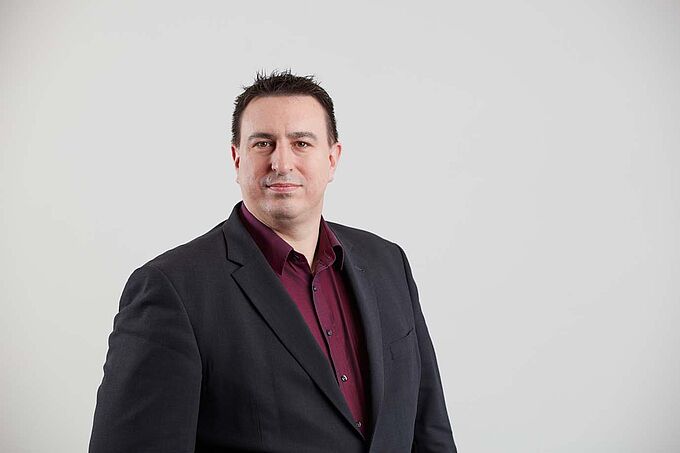![[Translate to Englisch:] [Translate to Englisch:]](/Bilder/_processed_/6/f/csm_MontageVT_0f689b6fc6.jpg)
Master’s in Traffic and Transportation (M.Sc.)
Today, all areas of modern society are affected by how efficient transport systems are - both in everyday life and in the face of ever-increasing economic interdependence. New propulsion technologies, the ongoing networking of all modes of transport, their infrastructure and vehicles or of vehicles with each other, and the range of innovative forms of organization and mobility services will all play a key role in the years to come.
The aim of the Master's program is to train industrial engineers specializing in transport who are able to influence the at times rapid developments in the field and keep pace by applying the methodologies they have studied.
The course is designed for graduates from the department of Traffic and Transport Engineering and comparable degree programs in engineering or spatial sciences. Drawing on the knowledge gained in the Bachelor's degree program, students learn the skills required for academic work, for implementing their findings and transferring this knowledge into practice, and for generating business ideas.
Objectives
Combining research and practice, this degree program focuses on the analysis and modelling of mobility and transport services with the aim of designing sustainable, intelligent and financially viable solutions to the challenges facing the transport sector. It is also an advantage that the Department of Business Administration is part of our joint faculty.
Quality over quantity, state-of-the-art, interdisciplinary
In addition to the subjects covered, another special feature of the program is the manageable size of the seminar and study groups, in which the theoretical knowledge acquired is put into practice.
The wide range of options in the fields of economics/management/law, transport technology and transport planning tools, some of which are taught in English, address current topics and developments.
The degree program also aims to enable students to develop an understanding of related areas such as information technologies and environmental protection, along with communication and organizational skills.
Practice-oriented
Independent project work and field trips (also abroad) combine to deliver a practical and modern education.
In technical subjects, but also with regard to business issues, modelling and simulation are central to understanding causal relationships.
Students are taught how to use various techniques and software (VISUM, VISSIM, GIS, CAD, various traffic control software) and to apply these are tested in increasingly demanding case studies, for which the Department of Traffic and Transport Engineering maintains several specialist laboratories.
Overview
Overview
The Master's program is designed to run full-time over four semesters - starting with a one-semester method-oriented foundation course, followed by two semesters of specialization and a one-semester final stage.
Modules in the Master's in Traffic & Transportation
Detailed information and provisions concerning the various stages of study are set out in the program regulations.
- Program Regulations for this faculty
Final stage - the Master’s thesis
The Master's program ends with the Master's thesis and colloquium in the 4th semester.
The Master’s thesis must be written as a practice-oriented project over a period of 16 weeks as part of a work placement in a company. It is supervised by the teaching staff of the faculty.
In order to register your Master’s thesis, please use the forms on the right.
The regulations (on the right-hand side) are binding for writing your Master's thesis. The information sheet contains important advice on writing your thesis.
Downloads
Entry requirements
In order to be admitted you need a Bachelor’s degree vwith a minimum of 180 credit points and an overall grade of at least an overall grade “gut” (German grade 2) in Engineering or Industrial Engineering in the field of Traffic and Transport.
Applicants from other comparable degree programs and those with a final grade lower than "good" (2.5) have to undergo a separate admissions procedure.
Please note: This degree program is taught in German and therefore requires all students to have at least C1 level German skills. More information on applying to FH Erfurt as an international student can be found here.
Applications / Deadlines / Starting Date
You can apply online on the University of Applied Sciences Erfurt website via the applications portal if you have qualifications from Germany. Applicants with qualifications from outside Germany need to apply via Uni-Assist. For more information, visit our international applications site.
Further documents must then be submitted to the Student Admissions Office by post.
You can apply from 15 May until 15 September every year.
The degree program begins in the winter semester of each year.
Any more questions about the degree program?
Office hours
Fridays 11 - 12 a.m.
(by prior arrangement by email)
Potential employers
Our graduates are in high demand and can choose from a wide range of interesting careers. A Master of Science degree in Traffic and Transportation from the University of Applied Sciences Erfurt opens up new opportunities by focussing on relevant topics such as
- transportation systems engineering
- transport modelling
- accessibility
- transport economics and policy
- traffic information and communications
and therfore a variety of exciting career paths - both in the private sector and in public institutions.
Areas of work
With its broad spectrum of thematic fields in the areas of traffic engineering and mobility management, the Master of Science qualifies students for careers in a variety of sectors, such as
Research and Development
- collaboration in research and development departments in the traffic engineering and mobility management sectors
- academic career (next step: doctoral studies)
Planning and Implementation
- strategic planning and day-to-day operational management in the field of passenger transport for transportation companies
- planning and operation of transport infrastructures in public administrations and the private sector
- planning and development in the field of commercial mobility services
Consulting
- planning, scheduling and consulting in planning and engineering offices; leading planning teams
- management positions in consulting companies in the transport sector
Traffic and mobility - an interesting field of work with a bright future!

